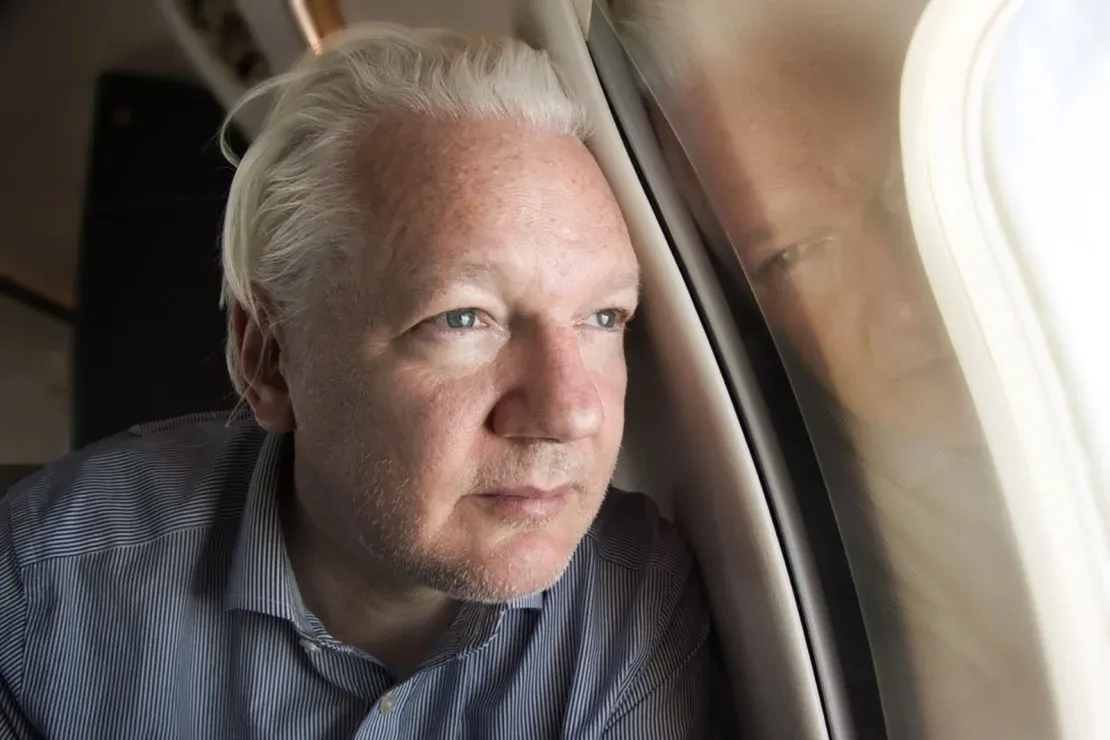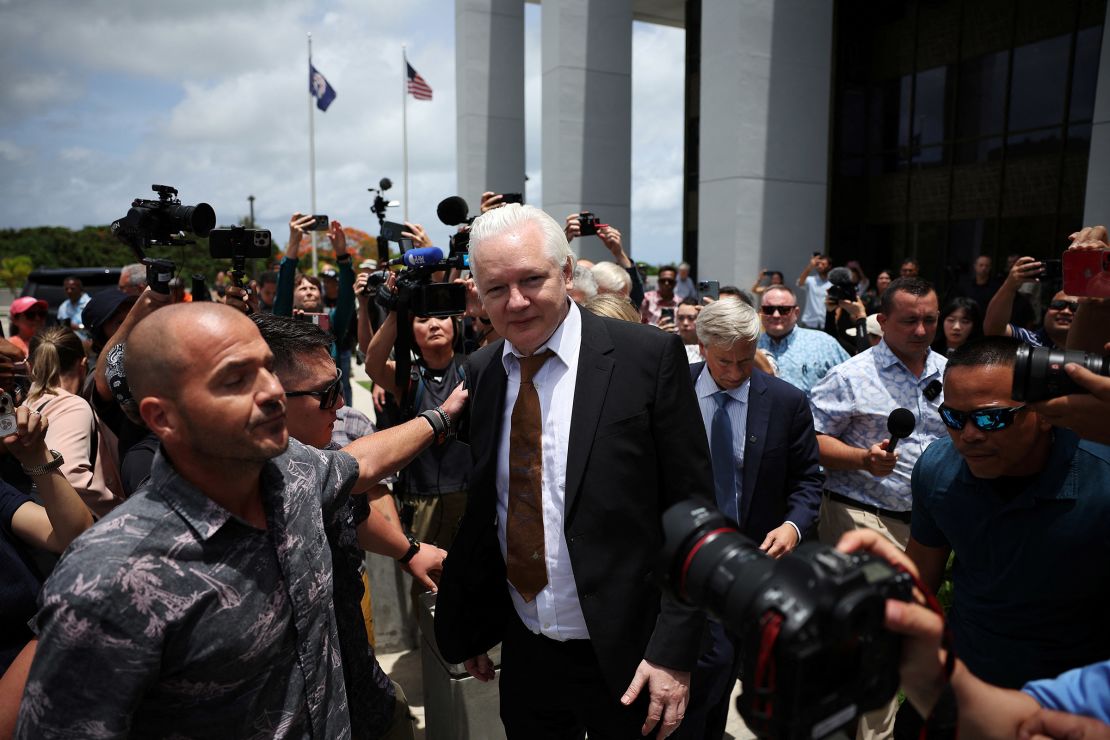Julian Assange: The Journey from Whistleblower to Prisoner and the Path to Release

Introduction
Julian Assange, the founder of WikiLeaks, has been one of the most controversial figures of the 21st century. Known for his role in publishing classified documents, Assange's legal battles have drawn international attention, culminating in his imprisonment and ongoing efforts to secure his release. This article provides an in-depth look at the history of Assange's case, the charges against him, his time in prison, and the developments leading up to his potential release.



The Rise of WikiLeaks
WikiLeaks, founded by Julian Assange in 2006, quickly became known for publishing classified and sensitive information from anonymous sources. The platform's most significant leaks included:
- Collateral Murder Video (2010): Footage showing a U.S. military helicopter attack in Baghdad that killed multiple people, including two Reuters journalists.
- Iraq and Afghanistan War Logs (2010): Tens of thousands of classified military documents detailing the wars in Iraq and Afghanistan.
- U.S. Diplomatic Cables (2010): A massive trove of diplomatic cables revealing confidential communications between the U.S. State Department and its embassies worldwide.
These leaks sparked global debate over government transparency, national security, and the ethics of whistleblowing.
Legal Troubles Begin
Assange's legal issues began in earnest in 2010 when Swedish authorities sought his extradition for questioning over allegations of sexual misconduct. Assange denied the allegations, suggesting they were politically motivated. In 2012, to avoid extradition to Sweden (and potentially to the U.S.), Assange sought asylum in the Ecuadorian Embassy in London, where he remained for nearly seven years.
Extradition and Imprisonment
In April 2019, after Ecuador withdrew his asylum status, Assange was arrested by British police. He was subsequently sentenced to 50 weeks in prison for breaching bail conditions related to the Swedish case. Meanwhile, the U.S. government unsealed an indictment against him, initially charging him with conspiring to hack into a Pentagon computer network.
The charges against Assange were later expanded to 18 counts, including violations of the Espionage Act for his role in publishing classified documents. If extradited to the U.S. and convicted, Assange faced the possibility of decades in prison.
Key Legal Arguments
Assange's defense team argued that the charges against him were politically motivated and that he would not receive a fair trial in the U.S. They also raised concerns about his health and the conditions he would face in American prisons. On the other hand, U.S. prosecutors contended that Assange's actions endangered lives and compromised national security.
Developments Leading to Release
Throughout his imprisonment in the UK's Belmarsh Prison, Assange's health reportedly deteriorated, prompting further outcry from human rights organizations and his supporters. In January 2021, a UK judge ruled against extraditing Assange to the U.S. on mental health grounds, citing the risk of suicide. However, the judge did not dismiss the charges themselves, and the U.S. appealed the decision.
Final Plea and Potential Release
In December 2021, the UK High Court overturned the decision to block Assange's extradition, bringing him closer to being sent to the U.S. However, his legal team filed an appeal to the UK Supreme Court, which was pending review.
Julian Assange's journey from the founder of WikiLeaks to a prisoner has been marked by significant legal battles, international debates on press freedom, and concerns over human rights. As of now, Assange remains in the UK, awaiting the outcome of his legal appeals. His case continues to be a touchstone in discussions about the balance between government secrecy and the public's right to know, the protection of whistleblowers, and the implications of digital-era journalism.
Assange's potential release hinges on ongoing legal decisions, international diplomacy, and the broader implications of his case on global press freedom. The outcome will undoubtedly shape the future landscape of whistleblowing and information transparency in the digital age.
For more detailed information and updates, visit National Crime Agency's news page.

Julian Assange's Release: A Comprehensive Overview of the Case and the Final Plea Deal
Introduction
Julian Assange, the founder of WikiLeaks, has been a central figure in global discussions about government transparency, press freedom, and national security. After years of legal battles and imprisonment, Assange has been released following a plea deal with the U.S. government. This article explores the history of Assange's case, the charges against him, and the details of the plea deal that led to his release.
Background on Julian Assange and WikiLeaks
Julian Assange gained international notoriety in 2010 when WikiLeaks published a series of high-profile leaks, including the "Collateral Murder" video, the Iraq and Afghanistan war logs, and thousands of U.S. diplomatic cables. These leaks exposed significant details about U.S. military operations and diplomatic affairs, sparking a global debate on transparency and security.
Legal Battles and Imprisonment
Assange's legal troubles began in 2010 when Swedish authorities sought his extradition for questioning over allegations of sexual misconduct. To avoid extradition, Assange sought asylum in the Ecuadorian Embassy in London in 2012, where he remained until 2019. When Ecuador revoked his asylum, Assange was arrested by British authorities and subsequently sentenced to 50 weeks in prison for breaching bail conditions.
In addition to his UK legal issues, the U.S. government indicted Assange on multiple charges, including violations of the Espionage Act for his role in publishing classified documents. These charges carried the potential for significant prison time, leading to a prolonged legal battle over his extradition to the U.S.
The Plea Deal and Release
In a significant development in June 2024, Assange was released following a plea deal with the U.S. government. According to reports, Assange agreed to plead guilty to a single count of conspiracy to obtain and disseminate national defense information. This plea deal resulted in his release from a high-security British prison after serving time equivalent to his sentence (The Daily Star) (The Daily Star).
The plea deal, finalized in the Northern Mariana Islands, allowed Assange to avoid further extradition and return to Australia. This outcome was the result of extensive negotiations and pressure from various international supporters, including the Australian government, which argued that Assange's prolonged detention served no further purpose (The Daily Star) (The Daily Star) (The Daily Star).
Implications of the Plea Deal
The plea deal has significant implications for press freedom and the future of journalism. By resolving Assange's case without setting a new legal precedent, the agreement alleviates concerns about the potential criminalization of journalistic activities involving classified information. However, the case has already cast a long shadow over investigative journalism, highlighting the risks faced by those who expose government secrets (The Daily Star) (The Daily Star).
Reactions to the Release
The release of Julian Assange has been met with mixed reactions. Supporters hail it as a victory for press freedom and human rights, celebrating the end of Assange's legal ordeal. Assange's wife, Stella Assange, and numerous free speech advocates expressed immense relief and gratitude for the international efforts that contributed to his release (The Daily Star).
Conversely, critics argue that the plea deal represents a compromise that fails to address the broader issues of government accountability and the protection of whistleblowers. Former U.S. officials and some political figures have criticized the decision, viewing it as undermining national security interests (The Daily Star).

Conclusion
Julian Assange's release marks the end of a lengthy and highly publicized legal saga that has profound implications for journalism, government transparency, and international law. While the plea deal brings relief to Assange and his supporters, it also underscores ongoing debates about the balance between national security and the public's right to know. The resolution of Assange's case is a pivotal moment in the ongoing struggle for press freedom and the protection of whistleblowers in the digital age.
For further details, you can read more on Al Jazeera, CNN, and The Daily Star.


Julian Assange's legal troubles and the charges against him do have connections to the Vault 7 leaks. Vault 7 refers to a series of documents released by WikiLeaks in 2017, which detailed the hacking tools and capabilities of the CIA. This release exposed the agency's methods for hacking into phones, computers, and other electronic devices worldwide.
Connection to Vault 7
- Vault 7 Overview: Vault 7 is a collection of classified documents detailing the CIA's hacking tools and techniques. The release of these documents by WikiLeaks in March 2017 revealed the extent of the CIA's cyber-espionage capabilities and sparked significant controversy over government surveillance.
- Charges Related to Vault 7: Julian Assange was implicated in the Vault 7 leaks as part of the broader set of charges against him. The U.S. government accused him of conspiring with former U.S. Army intelligence analyst Chelsea Manning to obtain and publish classified information. The Vault 7 documents were part of this broader campaign of leaks, which included earlier disclosures like the Iraq and Afghanistan war logs and the U.S. diplomatic cables.
- Espionage Act Charges: The indictment against Assange included multiple counts under the Espionage Act, which related to his role in the publication of classified documents, including those from the Vault 7 leaks. The U.S. government argued that Assange's actions endangered national security and the safety of intelligence sources.
- Impact on Assange's Legal Battles: The Vault 7 leaks intensified the scrutiny on Assange and WikiLeaks, leading to increased efforts by the U.S. to secure his extradition and prosecute him. The sensitive nature of the Vault 7 documents and their implications for national security were used to justify the charges and the push for his extradition.
Plea Deal and Release
In June 2024, Assange's release was facilitated by a plea deal with the U.S. government. Under this deal, Assange pleaded guilty to a single count of conspiracy to obtain and disseminate national defense information, a charge that encompasses his activities related to the Vault 7 leaks and other disclosures. This plea deal resulted in Assange being credited for time served and allowed him to return to Australia, thus avoiding further imprisonment.
Conclusion
While the Vault 7 leaks are not the sole reason for Assange's legal challenges, they played a significant role in the charges against him and the efforts to extradite and prosecute him. The leaks highlighted the broader issues of government surveillance, press freedom, and the risks associated with the publication of classified information. Assange's case continues to be a pivotal example of the complex interplay between national security and the public's right to know.







